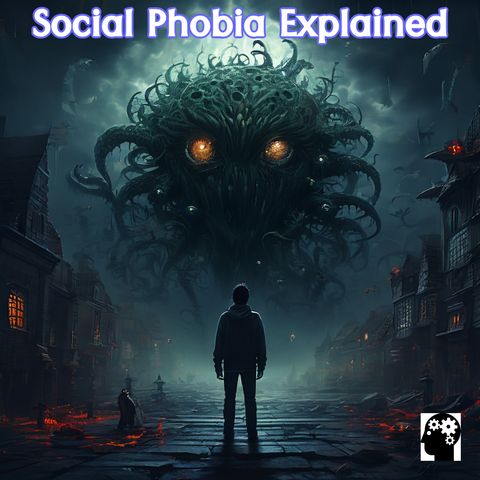Social Phobia Explained

Download and listen anywhere
Download your favorite episodes and enjoy them, wherever you are! Sign up or log in now to access offline listening.
Social Phobia Explained
This is an automatically generated transcript. Please note that complete accuracy is not guaranteed.
Description
Exploring the Depths of Social Phobia Social phobia, or social anxiety disorder, is a mental health condition characterized by an intense, persistent fear of social situations. This fear can significantly...
show moreSocial phobia, or social anxiety disorder, is a mental health condition characterized by an intense, persistent fear of social situations. This fear can significantly impact an individual's ability to interact with others and perform everyday activities.
Individuals with social phobia often experience overwhelming anxiety about being judged or negatively evaluated by others. This can lead to avoidance of social interactions, such as attending parties, speaking in public, or even engaging in small talk.
The fear of embarrassment or humiliation drives these behaviors, making social engagements a source of immense stress.
Common symptoms of social phobia include a racing heart, excessive sweating, trembling, and a dry mouth. These physical symptoms are often accompanied by intense feelings of fear and self-consciousness. People with social phobia might also experience panic attacks in social situations, further reinforcing their desire to avoid these scenarios.
The roots of social phobia can be traced to a combination of genetic, environmental, and psychological factors. Traumatic social experiences, such as bullying or ridicule, can trigger the onset of the disorder. Additionally, individuals with a family history of anxiety disorders are more likely to develop social phobia themselves.
Effective treatment for social phobia includes cognitive-behavioral therapy (CBT), which helps patients identify and challenge irrational fears and develop healthier thinking patterns. Medications like SSRIs can also help manage the symptoms. Supportive therapies, such as group therapy and exposure therapy, allow individuals to practice social skills in a safe environment.
We hope this topic has been useful to you. Share it if you think it can help other people. Be happy.
We trust you found this information beneficial.
Pass it along to help others. Enjoy your day!
If you found this topic insightful, feel free to share it with others. Wishing you happiness!
Uncover more about social phobia and its treatments with our handpicked selection of Amazon books.
Click below to access valuable resources that can guide you towards a more confident, socially active life!
Information
| Author | Find Out How! |
| Organization | Find Out How! |
| Website | - |
| Tags |
Copyright 2024 - Spreaker Inc. an iHeartMedia Company

Comments